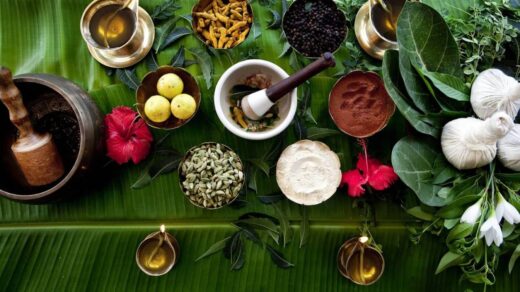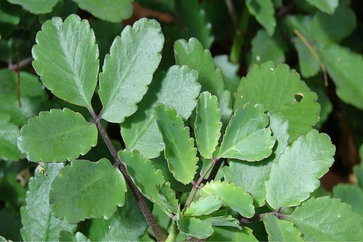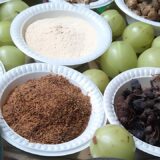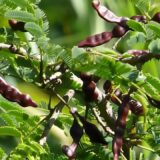Ayurvedic Diet – What should We Eat According To Ayurveda?
Ayurveda means “science of life,” and the main concept believes that everything in the universe, including our body, presents the five elements of nature that are: Space, Air, Fire, Water and Earth.
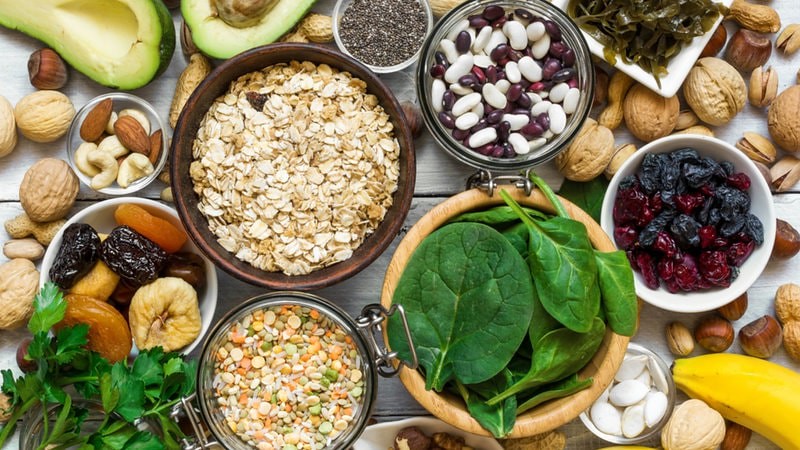
These elements are express in the Ayurvedic philosophy as the Doshas, which are like ‘humor’ that act physiologically and tend to cause the body’s imbalance and disharmonies.
With Indian origin, the ayurvedic diet consists of the application of foods that will give your body wisdom so that it reaches complete balance. It is a beneficial diet and indicated for all who seek a better quality of life.
Does the Ayurvedic diet work in weight loss?
The main goal of the ayurvedic diet is not exactly weight loss. People who follow it believe it improves the immune system and thereby prevents disease. But losing weight ends up being a consequence of the process.
By promoting a low intake of carbohydrates and fats, the Ayurvedic diet contributes to weight loss, but this result can vary from person to person.
Ayurveda philosophy believes in the theory of “sound” “mind” and “body”, what happens in your body, both physical and emotional, reflects on what, and how you eat, think, and what do.
What are doshas?
Dosha means defect and indicates what is in an imbalance in our body, leading to psychophysical disharmonies. The Doshas indicate the biological profiles of each person through three doshas, Vata, Pitta, and Kapha.
According to the theory, all people have three energies, but there will always be one or two that will predominate. To know which of your Doshas are in imbalance.
It is necessary to do a specific test or look for a specialist to evaluate you. It is important to know that your imbalance may change over time, so a re-testing or re-evaluation from time to time may be necessary.
What are the characteristics of doshas?
- Vata – Cold, light, and dry is the characteristics of this Dosha, and is related to elements of the air. When this energy is imbalanced, the person may feel tired and anxious, in addition to living with insomnia. It can also cause constipation and bumps that cause discomfort.
- Pitta – This Dosha is characterized by being warm, oily and light, and is related to fire and water elements. This energy when unbalanced can cause irritation, and these people tend to be intolerant. They hardly feel cold and have a high appetite. It can also cause some skin disorders, with the presence of acne and reddish skin.
- Kapha – Cold, heavy, and oily are the characteristics of this Dosha and are related to the elements of water and the Earth. When this energy is in imbalance, people tend to have possessive behavior and, many have weight gain. Respiratory problems and excessive mucus production are also common symptoms.
How does the ayurvedic diet work?
In general, the ayurvedic diet considers fruits, vegetables, and vegetables of the season; milk and milk products; and organic chicken as healthy food. Fish, olive oil, walnuts and nuts, whole grains, seasonings, and condiments are also examples of healthy foods.
Stimulant beverages, refined sugar, and salt, red meats, white flour, soft drinks, sweets, fried foods, animal fats, alcohol, and products with chemical additives should be avoided.
But if you know your Doshas, you will be able to avoid foods that impair your body’s balance according to its characteristics and introduce foods that aid in detoxifying your body.
With proper functioning of your body and organs like the liver and kidneys, your toxins will be properly filtered leading to the balance of your body.
Ayurvedic diet for Vata dosha
It prioritizes the sweet, sour, and salty flavors, and avoids bitter and astringent flavors, more common in cold, dry, light, and cold foods. It is recommended to follow a regular routine with breakfast, lunch, and dinner, and eat in quiet surroundings.
Foods indicated:
- Fruit ripe and sweet
- Baked and spiced vegetables
- Cooked or heated cereals (oats, quinoa, brown rice, and wheat)
- Lentil, pea, moyashi and tofu
- Milk and dairy products
- Organic chicken, eggs, fish, and seafood
- Seasonings and Condiments
- Oilseeds
- Oils and oils moderately
- Herbal tea or spices such as fresh ginger and cinnamon
- Brown sugar, jaggery, honey, agave, sucralose, and stevia
Foods to Avoid:
- Dry fruits
- Raw, dry, and cold vegetables
- Dry cereals such as granola
- Beans and soybeans
- Milk powder and canister, since the milk indicated should be organic.
- Red, pork, and rabbit meats.
- Alcohol, mate, coffee, soft drinks, chocolate, and black tea.
- Sweets and white sugar, saccharin, and aspartame.
Ayurvedic diet for pitta dosha
Bitter, sweet, and astringent flavors are the most indicated and the acids should be avoided. Feeding yourself regularly and fractionally throughout the day is super important.
Foods indicated:
- Fruit ripe and sweet
- Sweet and sour vegetables (beets, celery, squash, spinach)
- Cereals (quinoa, oats, granola, white rice, and basmati, wheat and barley)
- Beans, soy, and tofu
- Unsalted butter, ghee, white cheese, and organic milk
- Freshwater fish and organic chicken
- Condiments (cumin, coriander, mint, parsley, chives, rock salt, bay leaf, and saffron)
- Coconut and almonds
- Sunflower and canola oils and olive oil.
- Brown sugar, stevia, agave, sucralose
- Herbal teas
Foods to Avoid:
- Sour fruits
- Vegetables such as eggplant, tomatoes, and radish
- Maize, rye, brown rice, millet, and buckwheat.
- Butter with salt, yogurt, and yellow cheese
- Red meats, eggs, fish, and seafood.
- Spicy condiments
- Oilseeds
- Corn, sesame, and almond oils
- Energy drinks and stimulants
- White sugar, honey, and sugar cane
Ayurvedic diet for Kapha dosha
The metabolism of these people is usually slower than usual, and digestion tends to be weaker and slower, so avoiding fatty and sweet foods is key. Prioritize foods lighter and dry, they are the most indicated.
Foods indicated:
- More acidic and citrus fruits
- Vegetables
- Barley, quinoa, corn, granola, rye, oats, basmati rice, millet, and tapioca
- Beans, peas, lentils, and tofu
- Hot and spicy goat’s milk
- Organic chicken, eggs, and freshwater fish
- Seasonings and Condiments
- Moderately sized corn, canola, and sunflower oils
- Honey, stevia, and sucralose.
- Herbal tea and spices (black tea and black coffee and green tea are allowed moderately
Foods to Avoid:
- Sweet fruits
- Vegetable tubers and raw tomato
- Wheat, brown rice, and white
- Soy and moyaship
- Milk, butter, and cheeses in general
- Red meats, sea fish, and seafood
- Refined salt
- Coconut oil, olive oil, sesame, and soy
- Alcoholic beverages and cold drinks in general
- White sugar, rapadura and fructose
Dosha is an important aspect of a diet or any other Ayurvedic treatment so determining your type of doshas is a must.
Before going on an Ayurvedic Diet it is necessary first to know your Dosha or biological energy.

